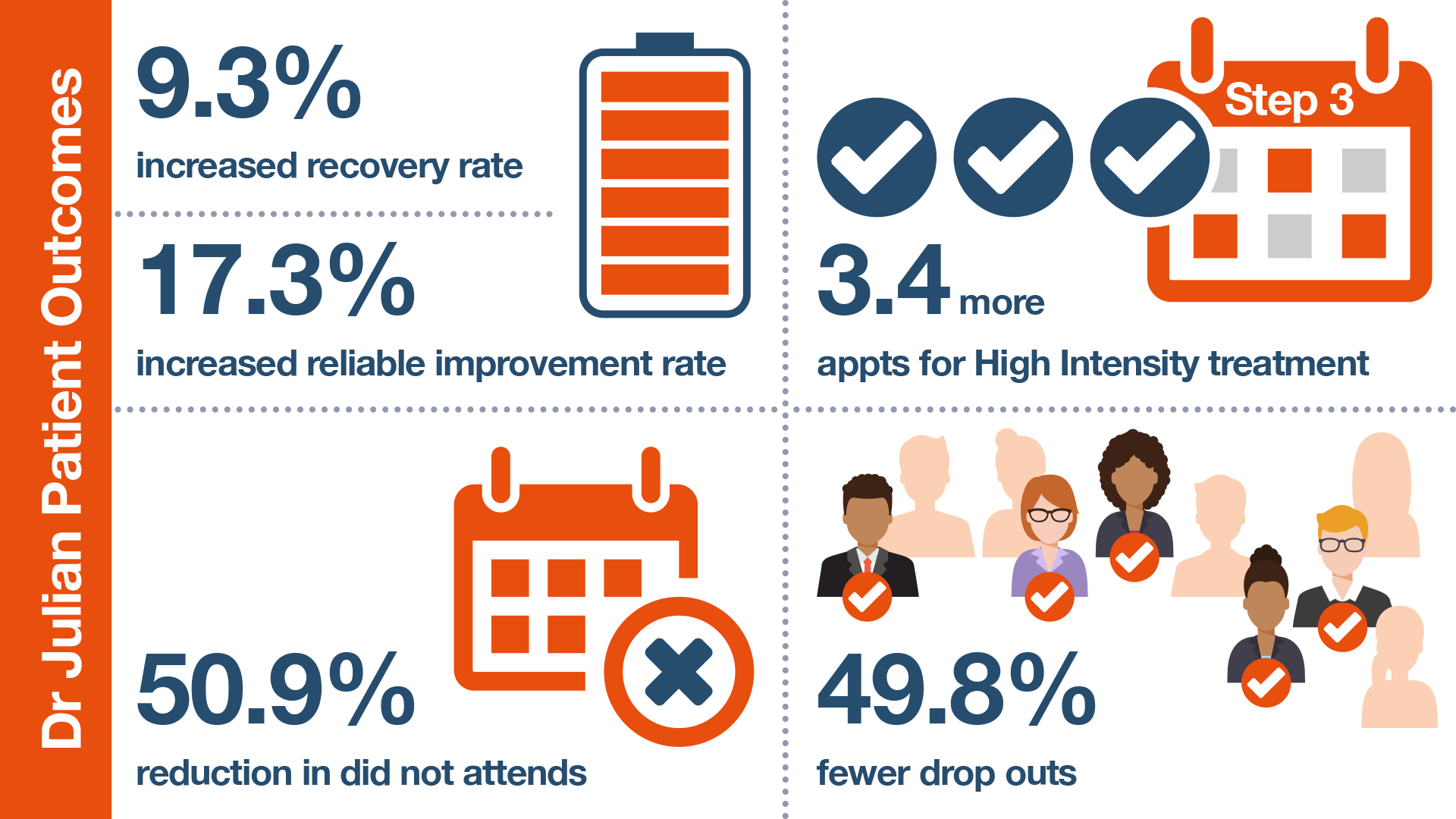KSS AHSN has released the results of its health economic model that compares outcomes between Dr Julian, an innovative mental healthcare platform, and the current NHS Improving Access to Psychological Therapies (IAPT) service.
The Dr Julian app aims to increase accessibility of mental healthcare, connecting patients almost immediately to mental healthcare therapists by secure video/audio/text appointments.
The platform links into IAPT services in England, providing an alternative to face to face therapy in person by offering therapist appointments at the time that suits the person.
Using data across four providers currently using Dr Julian, and the extensive public IAPT dataset, the health economic modelling showed an NHS return of £1.33, and a total return (including social benefits) of £2.83 for every £1 spent over five-years.
The modelling also outlined a range of patient outcomes for Dr Julian, compared to the current NHS IAPT service approach:

KSS AHSN began supporting the team behind Dr Julian last summer, after its CEO attended one of our Market Insight Briefings.
These briefings are free 90-minute sessions are designed to help healthcare innovators to understand the complexities of the NHS, develop their market access strategy, and mark the first stage of support available from the KSS AHSN Industry team.
Through a series of 1:1 surgeries we were able to help Dr Julian to identify its value proposition, and review the evidence of outcomes, which showed a number of evidence gaps.
Nuala Foley, KSS AHSN’s Industry Engagement Manager, said that KSS AHSN’s Insights team was able to help close those gaps with a more robust independent evaluation.
“From the start KSS AHSN has acted as a critical friend to Dr Julian, providing insight and advice on a range of issues – from helping the team prepare for a key member of staff’s maternity leave, to exploring potential new markets, and supporting an intern to develop a marketing strategy to engage with universities,” she added.
“We’re now working with them to use the health economic model effectively, as well as brokering conversation with the mental health trusts in the KSS region and feeding back value insight from commissioners and clinicians to the company.”





